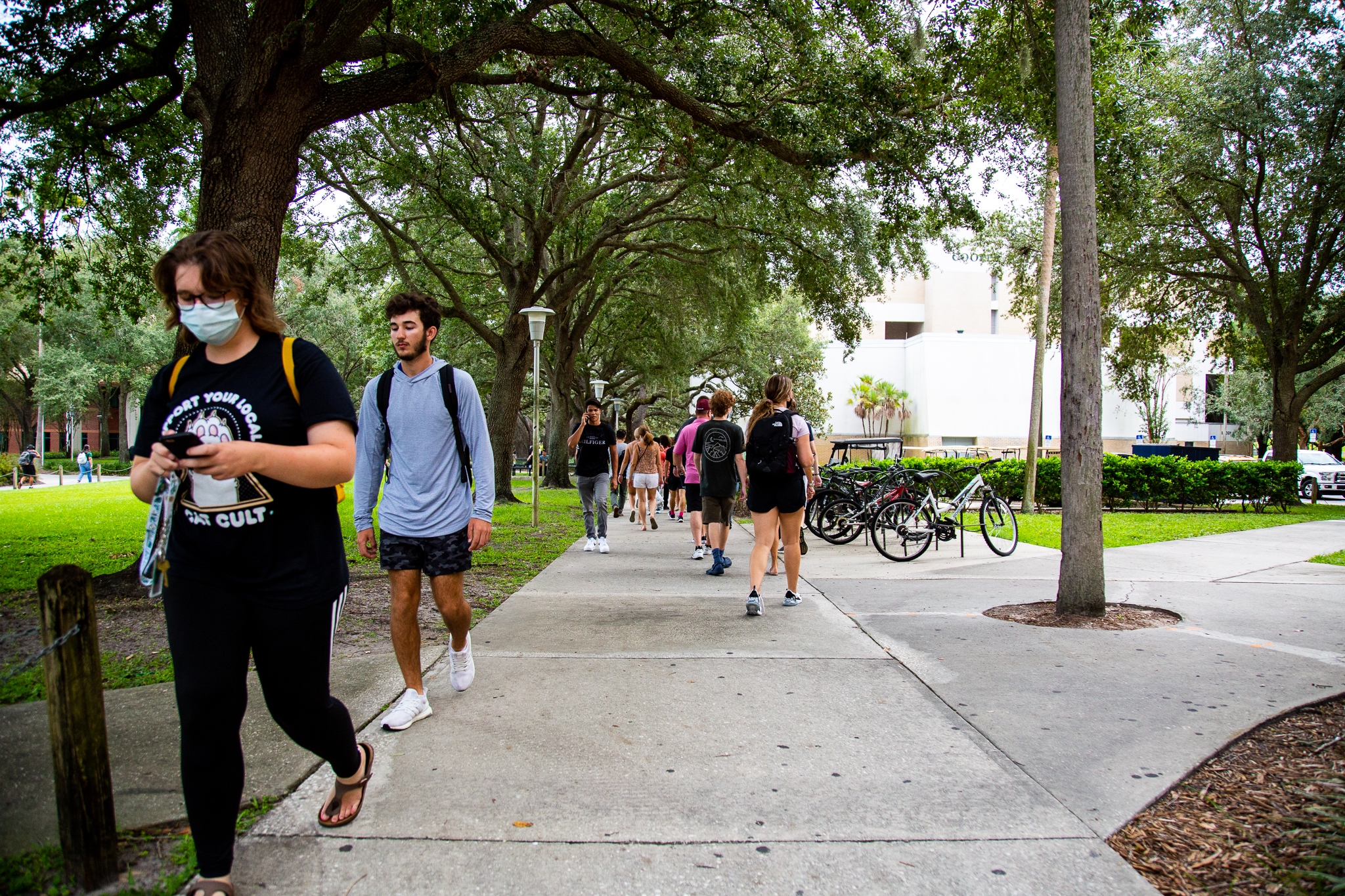Academic advising returns to in-person sessions

Shifting away from fully virtual advising adopted during the pandemic, Assistant Dean of Academic Outreach and Support Melissa Irvin said academic advisors plan to return to in-person advising, while keeping virtual advising an option, beginning this semester.
The American working class has greatly struggled with imagining how the average 9-5 job will be structured in a post-pandemic society, according to a 2021 Harvard Business Review article. Out of a survey of 1,500 employees, Harvard found that over 81% preferred a fully virtual or hybrid model of instruction, with 61% answering that they would like to work from home 2-3 days a week.
Changes made to shift university jobs from in person to online during the pandemic had both their benefits and drawbacks, according to Irvin. For example, she said while workers were able to have better opportunities at multitasking – such as attending virtual meetings while concurrently completing projects – it also removed an aspect of community and personalization.
“I think it’s great to talk broadly about how COVID has affected work patterns even looking beyond hours of operations, because we need to realize that people worked much differently when working 100% remotely. It changed when people started, stopped and took breaks. It affected workers’ abilities to collaborate in different ways,” she said.
“With the introduction of working remotely, and then for the first year of COVID, it really was a lot of crisis management, and anytime you’re in [a] sort of crisis mode, the hours are very different. There were a lot of new decisions that we had never been asked to make before as university offices and employees, and there’s still a lot of newness to it.”
Advisors have particularly been impacted by the shift between pre-pandemic, mid-pandemic and post-pandemic advising modalities, according to Irvin. In contrast to before the pandemic, she said advisors were greeted with a higher volume of student questions and concerns as well as increased collaborative freedom when the pandemic began.
“There are a lot of offices that work extremely long hours, especially since the pandemic started. At the beginning, people had a lot more questions and those questions became a lot more repetitive,” she said. “The volume of questions that got asked increased because people needed more reassurance. The comfort that people used to feel while navigating things on their own was gone because there was so much unknown.”
Irvin said the modes in which advising will be conducted rely upon three factors: the size and capacity of advising staff, the needs of individual academic colleges and departments and the opinions of students.
Irvin released a randomized survey in 2021 to 15% of the student population in order to learn more about student academic advising experiences. Of those who responded to whether they preferred virtual or in-person advising, Irvin said she was surprised to find that votes were divided into a perfect split.
Survey results greatly assisted in structuring academic advising moving into a post-pandemic society, according to Irvin. She attributed the voting outcome to differences in student schedules, preference in modalities and accessible resources – such as transportation – available to individual students.
Returning back to how the 9-5 was previously structured prior to the pandemic would be a near impossible task given the degree of change that has occurred since, according to Irvin. Moving forward, she said discussions will need to be held on what best benefits not only the financial status of a workplace, but its staff.
“It’s moving past the crisis mode of COVID … you have staff and employees who really came to count on and rely on the flexibility that they were able to implement when they worked 100% virtually, and that hasn’t been something that we’ve always been able to maintain from a resource standpoint,” she said.
“We aren’t back to where we used to be with things like transportation and childcare that are limiting a lot of people’s ability to return 100% to the ways that they were working before… so there had to be some difficult conversations that came from that. I think, looking at different creative solutions, it’s going to become more acceptable in white collar knowledge-based work.”







